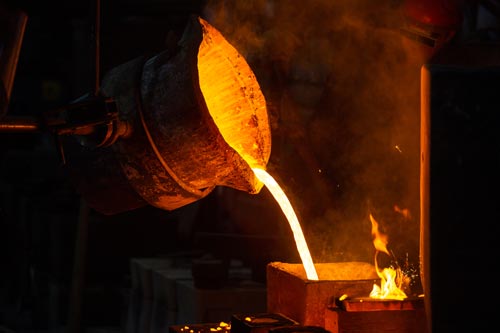Specialty tool steels are a type of alloy steel that is designed for use in tools and dies. They are typically characterized by high hardness, wear resistance, and toughness. Specialty tool steels are used in a wide variety of applications, including machining, stamping, and forging.
If you are new to specialty tool steels, you may have some questions about them. In this blog post, we will answer ten of the most common doubts about specialty tool steels.

What is specialty tool steel?
Specialty tool steels are a type of alloy steel that is designed for use in tools and dies. They are typically characterized by high hardness, wear resistance, and toughness. Specialty tool steels are used in a wide variety of applications, including machining, stamping, and forging.
Specialty tool steels are typically made from a combination of iron, carbon, and other alloying elements. The specific alloying elements used will determine the properties of the steel. For example, chromium is added to increase hardness and wear resistance, while tungsten is added to increase toughness.
What are the different types of specialty tool steel?
| Type | Characteristics | Typical Uses |
|---|---|---|
| High-speed steel (HSS) | High hardness, wear resistance, and toughness | Cutting tools, such as drills, saws, and milling cutters |
| Cold-work tool steel | High hardness, wear resistance, and toughness | Stamping and forging dies |
| Hot-work tool steel | High hardness, wear resistance, and resistance to heat | Forging and casting dies |
| Powder metallurgy tool steel (PM tool steel) | Fine-grained structure, high hardness, and toughness | Cutting tools, stamping and forging dies, and wear-resistant parts |
| Stainless tool steel | Corrosion resistance, high hardness, and toughness | Cutting tools, stamping and forging dies, and wear-resistant parts |
High-speed steel (HSS) is the most common type of specialty tool steel. It is characterized by its high hardness and wear resistance, which makes it ideal for applications where high cutting speeds are required.
Cold-work tool steel is used in applications where the temperature of the workpiece is below 200 degrees Celsius. It is characterized by its high hardness and toughness, which makes it ideal for applications where impact resistance is essential.
Hot-work tool steel is used in applications where the temperature of the workpiece is above 200 degrees Celsius. It is characterized by its high hardness, wear resistance, and resistance to heat, which makes it ideal for applications where high temperatures are present.
Powder metallurgy tool steel (PM tool steel) is made using powder metallurgy techniques, which results in a fine-grained structure. This fine-grained structure gives PM tool steels high hardness, toughness, and wear resistance.
Stainless tool steel is made with chromium, which gives it corrosion resistance. Stainless tool steels also have high hardness and toughness.
Special-purpose tool steel is designed for specific applications. For example, some special-purpose tool steels are designed for use in mining, aerospace, or manufacturing.
What are the benefits of using specialty tool steel?
Specialty tool steels offer a number of benefits over other types of steel, including:
High hardness: Specialty tool steels are typically much harder than other types of steel, which makes them more resistant to wear and tear.
Increased wear resistance: Specialty tool steels are also more resistant to wear than other types of steel, which makes them ideal for applications where high wear is expected.
Increased toughness: Specialty tool steels are also more tough than other types of steel, which makes them less likely to break or chip.
What are the drawbacks of using specialty tool steel?

Specialty tool steels also have some drawbacks, including:
Higher cost: Specialty tool steels are typically more expensive than other types of steel.
More difficult to machine: Specialty tool steels can be more difficult to machine than other types of steel.
Can be brittle: Specialty tool steels can be brittle at high temperatures, which can lead to cracking.
How to choose the right specialty tool steel?
When choosing the right specialty tool steel, it is important to consider the specific application in which the steel will be used. The following factors should be considered:
Hardness: The hardness of the steel should be appropriate for the application.
Wear resistance: The wear resistance of the steel should be appropriate for the application.
Toughness: The toughness of the steel should be appropriate for the application.
Cost: The cost of the steel should be considered.
FAQ:
Here are some frequently asked questions about specialty tool steels:
What is the difference between specialty tool steel and high-speed steel?
High-speed steel is a type of specialty tool steel. It is characterized by its high hardness and wear resistance, which makes it ideal for applications where high cutting speeds are required.
What is the difference between cold-work tool steel and hot-work tool steel?
Cold-work tool steel is used in applications where the temperature of the workpiece is below 200 degrees Celsius. Hot-work tool steel is used in applications where the temperature of the workpiece is above 200 degrees Celsius.
What is the difference between alloy steel and specialty tool steel?
Alloy steel is a type of steel that contains alloying elements. Specialty tool steel is a type of alloy steel that is designed for use in tools and dies. Specialty tool steels typically have higher levels of alloy

